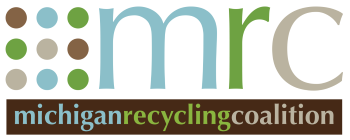Recycling Stories: Ann Arbor
 Ann Arbor has been a recycling leader in Michigan since the late 1970s. The nonprofit Ecology Center opened the state’s first recycling drop-off center in 1971. Recycle Ann Arbor began the first curbside collection program in the state in 1978. Ann Arbor city government embraced and began to support both functions in the early 1980s.
Ann Arbor has been a recycling leader in Michigan since the late 1970s. The nonprofit Ecology Center opened the state’s first recycling drop-off center in 1971. Recycle Ann Arbor began the first curbside collection program in the state in 1978. Ann Arbor city government embraced and began to support both functions in the early 1980s.
The City recovers over 50% of its residential waste through recycling and composting and has achieved an overall recovery rate of 40%, inclusive of the commercial/industrial sector.
In the last few years, however, the City has seen its dedicated solid waste fund balance dwindle through a combination of legacy costs; Federal accounting mandates for retiree pension benefits, ongoing monitoring and clean-up costs associated with its now closed municipal landfill, and other unexpected capital expenditures. Furthermore, in mid-2016, the City terminated its contract with its materials recovery facility (MRF) operator for perceived operational and safety concerns. Since that time, the City has been shipping its recyclables to a MRF in Ohio for lack of adequate material processing capacity at other facilities in the southeast Michigan region.
These and other challenges have led to unexpected costs for transportation that amount to approximately $800,000 of its $15 million annual solid waste budget. Resources to enhance and expand opportunities to commercial and multi-family recycling, downtown organics collection are simply not available and it’s difficult to quantify the opportunity cost of recycling commodities shipped to Ohio.
The lack of recycling processing capacity in the region at present has greatly complicated the City’s options in the near-term. In spite of that, the City is exploring all options, including teaming up with Washtenaw County to identify additional regional approaches that could provide cost-effective, long-term materials management strategies in the future.
